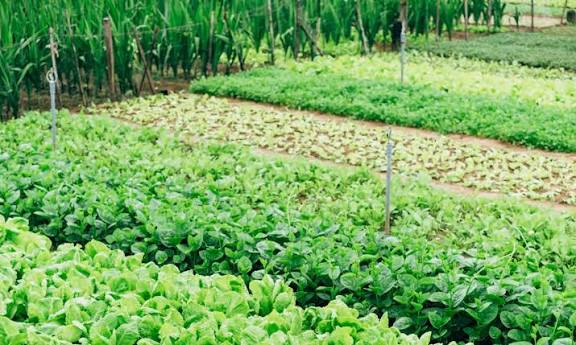Experts Urge Adoption Of Agroecology To Tackle Food, Climate Crises
•By Admin
IBADAN – EXPERTS in environmental sustainability and food production have called on the Nigerian government to mainstream agroecology into national agricultural policies as a sustainable approach to addressing the twin challenges of food insecurity and climate change.
They made the call during a one-day Practical Agroecology Training for Farmers held in Ibadan on Tuesday with the theme: “Solving the Food and Climate Crises.”
Prof. Olugbenga Adeoluwa of the Department of Soil Resources Management, University of Ibadan, said the training was designed to bridge the gap between healthy food production, climate-resilient actions and farmers’ everyday practices.
“Agroecology is the way to go for farming in Nigeria. Farmers are already facing new challenges brought about by climate change; unpredictable rainfall, pest invasion, and planting delays.
“Agroecology provides solutions to these, but farmers must first understand and be trained on its practices,” Adeoluwa said.
He explained that the training would help farmers understand practical applications of agroecological practices such as soil management, natural pest control and reduced chemical dependence.
According to him, participants can begin to implement what they learnt immediately on their farms.
“It doesn’t take time. Once they return to their farms, they can start applying these practices,” Adeoluwa said.
He urged government at all levels to replicate such trainings across the country and incorporate agroecology into agricultural extension services.
“This is what our local governments should be doing; training farmers and linking them to markets. If they produce and nobody buys, then it amounts to nothing,” he said.
He also called for policy inclusion, public investment, and research support for agroecological farming, adding that the concept aligns food production with environmental health.
“Agroecology is about working with nature; using biological and social components in farming, avoiding hazardous chemicals and genetically modified organisms (GMOs),” he added.
Also, Farm Manager Production, Be the Help Foundation Agroforestry, Mr Barnabas Iwan, said the initiative was meant to equip farmers with the knowledge to reduce input costs and boost productivity using natural resources around them.
“The greatest challenge farmers face is the high cost of chemical fertilizers and pesticides. Agroecology teaches farmers to produce their own fertilizers and pest control inputs using materials around them,” he said.
Iwan noted that adopting agroecological methods would help restore soil fertility, improve yields and promote ecological balance.
“When you use chemicals, you destroy the soil and atmosphere. But with agroecology, you improve the soil, sustain the climate and create a balanced ecosystem,” he added.
Also speaking, Ms Esele Ojeanelo, Project Assistant at the Health of Mother Earth Foundation (HOMEF), said the training aimed to promote food sovereignty and climate justice across the country.
Ojeanelo explained that the foundation had organised similar trainings in the South-East, North and South-South regions before bringing the programme to the South-West.
She expressed concern over the increasing adoption of genetically modified organisms (GMOs) in Nigeria, warning that they threaten soil health, biodiversity and human health.
“GMOs destroy microorganisms in the soil and have been linked to several health complications such as infertility and birth deformities. Countries with advanced health systems are banning GMOs; Nigeria, with its fragile health system, cannot afford to embrace them,” she said.
She called on the government to stop approving GMO crops and instead promote agroecology, which empowers smallholder farmers and ensures safer food production.
“Smallholder farmers can feed the nation if supported. The government should promote agroecology as a healthier, sustainable alternative to GMOs,” she said.
The training brought together farmers, researchers and environmental advocates to demonstrate practical agroecological methods, emphasizing soil health, organic composting and pest management without chemical inputs.

